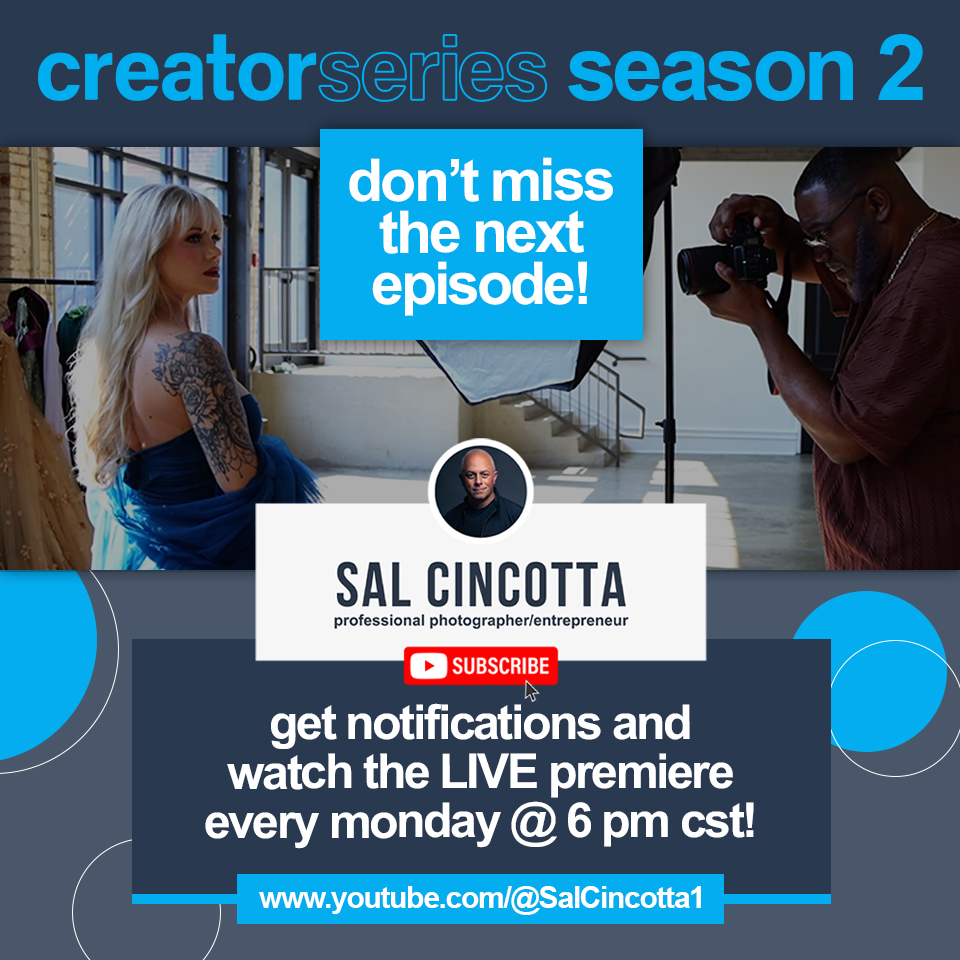Stop Pretending and Start Doing: 5 Tips for Running Your Business Like a Real Business with Laurin Thienes
Want more information on this article? Get access to video content and additional supporting images. Launch the April issue of the magazine by logging in or signing up for a free account by clicking here. Shutter Magazine is the industry’s leading professional photography magazine.
Photographers are some of the worst businesspeople out there. Most lack the business background and knowledge to be as successful as they could be. No photographer ever woke up one day and said, “I want to own a business.” Instead, they said, “I want to be a photographer.” What most did not realize when they made this decision was that making a living doing what they love is not just about being a good photographer, but about not failing at business. If you want to make a living and not just be an artist, it is time to stop pretending you are a business owner, and start acting like it.
Fail With Purpose
You are going to fail. A lot. Accept this fact. To do so, you can’t fear failure. Failing is normal and expected. No six-figure MBA, no overpriced mentor session, no perfect handholding is going to save you from failure. But with failure comes knowledge, experience and the ability to change the way you approach the circumstances that caused a failure. If you just get discouraged, throw up your hands and succumb to the defeat, you are losing the battle to become better in the business game. We ingrain the phrase “Do not run into the same wall twice” in every employee, from entry level to CEO. Every failure is a wall. Sometimes that wall is going to leave you bloody, and it will be painful. Learn from your mistakes, get up and push through. I have failed more times than I can count. Some of those failures have had significant impacts on my businesses, staff, friends and family. After my failures, I am a different business owner, a more knowledgeable business owner.
BAIT
What these four letters stand for is more important to the longevity of your business than your photography, by a long shot. They stand for “bookkeeping, attorney, insurance, taxes.” The reason the acronym is BAIT is because if you do not adequately address these items, your business becomes bait for a shark. You can either be a shark or you can be bait. I have failed miserably in all four of these areas at one time or another. Sloppy accounting can sink your business. At any given time, do you know how much income you’re bringing in? How about your expenses? Or do you wait until tax season? Habit-forming repetition is the key to making sure you are not letting your financial books go by the wayside. Not only is quality bookkeeping imperative to your business, it helps keep the tax man from your doorstep. Nothing can be more crippling for a business than ignoring tax implications of growth. I cannot stress this enough. Do not mess around with these two items.
How you handle insurance and attorneys is not as black and white as the above, but still an important area of your business structure. Put long-term solutions in place that protect you from the unknown “go to hell” scenario that you never thought was possible. All too often, the worst does happen, and being prepared puts you in a much better position to attack the unknown head on. Do it now and thank me later. Need some motivation? Search Google Images for the meme “Do sharks complain about Monday?” Download the best one to view daily, and remember that you do not want to be BAIT.
Get Inspiration
Maybe there is a business leader you follow. Maybe there are authors you read. Business inspiration comes in many forms. I find applicable concepts from shows like Shark Tank. I enjoy the reiteration of sound business principles. Some of the more applicable things have come from the shows Suits, Billions and House of Lies. There is business advice embedded in these scripted shows. I have been surprised multiple times when the lightbulb moment goes off while I’m watching them. Billions recently taught me that when something is not working at all, you should go in the opposite direction.
Bleeding Hearts Be Gone
No one loves your business more than you do. No one cares about your family more than you do. Protecting your business from your own lack of knowledge is often one of the slowest lessons learned. Likewise, having to protect your business from people you love is always a painful lesson to learn. People will always take advantage of generosity to the point of your detriment. And if they are not purposely taking advantage of your generosity, when push comes to shove, they will make the decisions that are best for themselves.
This holds especially true with staff. In a small business environment or studio, an employee can end up feeling like family or a good friend. In some cases, that employee is both. Once I had to terminate a good friend. I will spare the details, but the result of that situation became a failure moment in addition to a BAIT moment—a costly and painful one at that. From that experience, I learned that I had to change the way I operated as a business owner. I won’t tell you to never hire a friend or family member, because sometimes it makes sense. Just know that you have one mission, and the minute that friend or family member you hired gets in the way of your success, you have to put on your business owner hat and protect what you have built.
Opportunity Cost & Reporting
This is a basic principle that is overlooked enough that many business decisions are made without it being taken into account. If you choose A over B, you have lost the potential gain from B. You need to take opportunity cost into account when deciding how to price yourself and put a value on your time. Without valuing your time, you will find yourself doing tasks that make no business sense or, worse, taking on projects that end up losing you money even though they seem like great opportunities. There are entire courses on valuing your time as a creative. Understanding the concept of opportunity cost is a big part of valuing your time.
In addition to opportunity cost, you need to know what your overall costs are. Which costs are variable? Which are static? You do not have to be super analytical or a spreadsheet guru, but you do have to document your business metrics and set timely intervals to review your own reports. You can then start running your business on facts and not feelings. Feelings are the sentiment of a creative. Facts are the reality of the business owner.
Building your business acumen does not happen overnight. There is no magic class, no single book, no single mentor. It is about forming habits that give you consistency. It is about identifying where you are weak and making yourself stronger. It is not a sprint. It is a marathon. Soak up as much information as you can, but always remember that to find the success you are looking for, you should spend as much time focusing on your business as you do focusing on your craft.
Want more information on this article? Get access to video content and additional supporting images. Launch the April issue of the magazine by logging in or signing up for a free account by clicking here. Shutter Magazine is the industry’s leading professional photography magazine.




